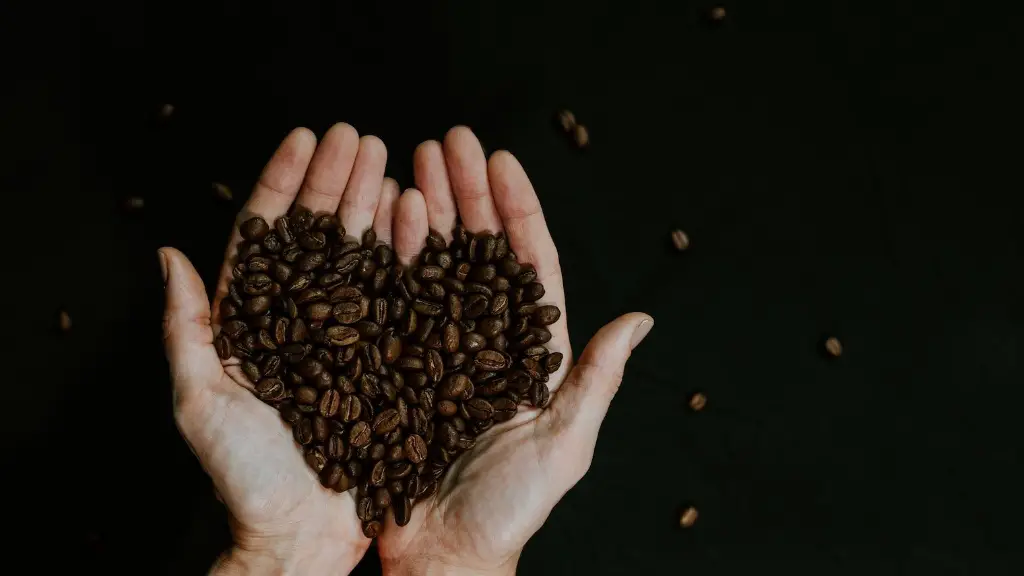The topic of ‘When I Drink Coffee I Feel Sick’ can be surprisingly complex. For some people, coffee is a magical cure-all to start their day with energy, while for others it is a sure-fire way to make their stomachs turn. While it can be tempting to simply reach for the nearest beverage, it’s important to investigate the potential causes if you consistently find yourself feeling sick after drinking coffee.
Caffeine is a naturally occurring stimulant found in coffee, tea, and other foods. Consumption of caffeine can lead to side effects such as nausea, dizziness, and headaches. Caffeine intolerance is a condition in which your body has difficulty processing or breaking down the caffeine in coffee. If you find that when you drink coffee you experience symptoms of nausea, stomach cramps, or headaches, this could be the cause.
Another potential cause of feeling sick when drinking coffee is the acidity of the beverage. Coffee contains a high level of acids, which can cause an upset stomach and other digestive issues. Too much caffeine can also cause acid reflux and make you more sensitive to acidic foods. If acidity is the culprit, switching to decaffeinated coffee, making your own brew at home, or adding milk and sugar to your coffee to make it less acidic may help reduce the side effects.
In addition to the potential causes of feeling sick after drinking coffee, there are several potential solutions. One is to try drinking tea instead, as it contains less caffeine and acid than coffee. Another is to switch to decaffeinated coffee. You can also make adjustments to your daily routine that can help reduce the symptoms of caffeine or acid intolerance. These include reducing your overall caffeine intake and not drinking coffee too close to bedtime.
While the underlying cause of feeling sick after drinking coffee is not always clear, there are steps you can take to reduce the symptoms. By identifying any potential triggers, maintaining a healthy caffeine intake, and making simple dietary adjustments, you can enjoy your morning cup of coffee without feeling sick.
Other Causes
While caffeine intolerance and acidity can be the main causes of feeling sick after drinking coffee, there could be other causes that should be investigated. It’s possible that the quality of the coffee you’re drinking could be the root of the problem. If the beans used to make the coffee are expired, moldy, or stale, it could be making you sick. If the brewing tools or equipment used to make the coffee are contaminated, you could also experience a range of negative side effects.
It could also be a sign that you have an underlying medical condition with food sensitivities or intolerances. If you find that drinking coffee makes you feel unwell even after adjusting your diet and routine, it’s best to speak to your doctor to identify the underlying cause.
Feeling Sick After Drinking Coffee: Tips For Prevention
While it’s not always possible to avoid feeling sick after drinking coffee, there are some tips to help reduce the uncomfortable side effects. Try to keep your caffeine intake to three cups of coffee a day or less. Avoid drinking coffee close to bedtime and avoid drinking coffee on an empty stomach. If you find your coffee is too acidic, try switching to a milder-tasting variety or adding milk and sugar to neutralize the flavor.
It’s also important to pay attention to the quality and storage of the beans or coffee grounds. If you find that your coffee tastes stale or off, it could be due to age or improper storage. In addition, be aware of any potential contaminants that could exist in the brewing equipment. Regularly cleaning your coffee pot and grinder could reduce the chances of experiencing side effects.
Anxiety and Feeling Sick After Drinking Coffee
It’s possible that drinking coffee—especially in excess—can be linked to anxiety and may induce a feeling of nausea. Caffeine is a stimulant, so it can increase your anxiety levels which can then lead to physical symptoms such as nausea, headaches, and stomach cramps. Additionally, the acidity of coffee can lead to feelings of unease and agitation, causing a feeling of sickness.
If you experience anxiety alongside feeling sick after drinking coffee, it’s important to take action. Start by reducing your caffeine intake and avoiding coffee shortly before bedtime. Speak to your doctor about potential anxiety or stress triggers and explore other potential treatments such as relaxation techniques, counseling, or medication.
Intestinal Problems and Feeling Sick After Drinking Coffee
Intestinal problems can also cause a feeling of nausea after drinking coffee. In some cases the digestive issues, such as Irritable Bowel Syndrome (IBS) or Gastroesophageal Reflux Disease (GERD), can be worsened by drinking coffee. Caffeine can speed up digestion and reduce muscle coordination in the intestines, leading to abdominal discomfort and nausea. Additionally, coffee can worsen digestive issues by increasing stomach acid production.
If you experience intestinal issues alongside feeling sick after drinking coffee, there are lifestyle and dietary changes you can make to reduce symptoms. Try to reduce your caffeine intake, drink plenty of fluids, and eat light meals. Speak to your doctor to identify any underlying digestive issues and explore medication and dietary changes that could help reduce symptoms.
Caffeine Sensitivity and Feeling Sick After Drinking Coffee
It’s possible to be physically sensitive to caffeine and to develop a condition known as caffeinism, which can sometimes be mistaken for other medical conditions. Symptoms of caffeinism include headaches, restlessness, excessive urination, nervousness, and heart palpitations. Additionally, those with caffeine sensitivity can experience nausea, dizziness, and stomach cramps after drinking coffee.
If you suspect you have a caffeine sensitivity, it’s important to limit your caffeine intake. You might be able to switch to decaffeinated coffee or opt for a different morning beverage entirely. Speak to your doctor to confirm a diagnosis of caffeinism and to discuss potential treatments.
Alternatives to Coffee
If you’re feeling sick after drinking coffee and looking for an alternative morning brew, there are other options. Tea is a popular option due to its lower levels of caffeine and acidity. Additionally, there are several non-caffeinated beverages that provide a range of health benefits. For example, matcha green tea contains healthy antioxidants and vitamins, while kombucha is a probiotic-filled fermented beverage.
If you still want the taste and smell of coffee, there are several decaffeinated kinds available. These coffees are made with a low caffeine content, but still maintain the deep roast and flavor of a traditional cup of joe. If you don’t want to give up drinking coffee, you can also try diluting your brew with water or adding more milk or sugar to reduce its potency.
The Bottom Line
If you find that when you drink coffee you feel sick, it could be the result of several potential causes. Caffeine and acid intolerance could be to blame, or it could be a sign that you have an underlying medical condition. Your morning cup of coffee should be a pleasant experience, so it’s important to pay attention to your body. Take the time to identify the potential causes, adjust your diet and routine, and if necessary, speak to your doctor to find the best solution.




